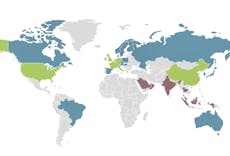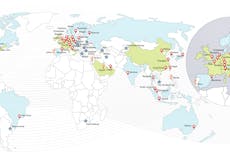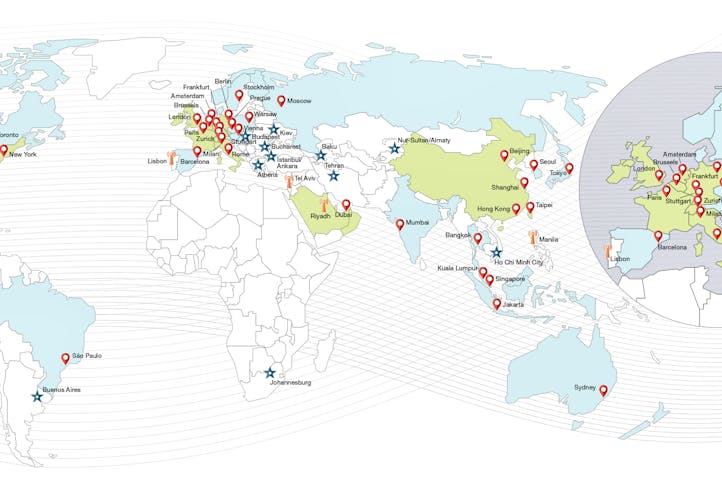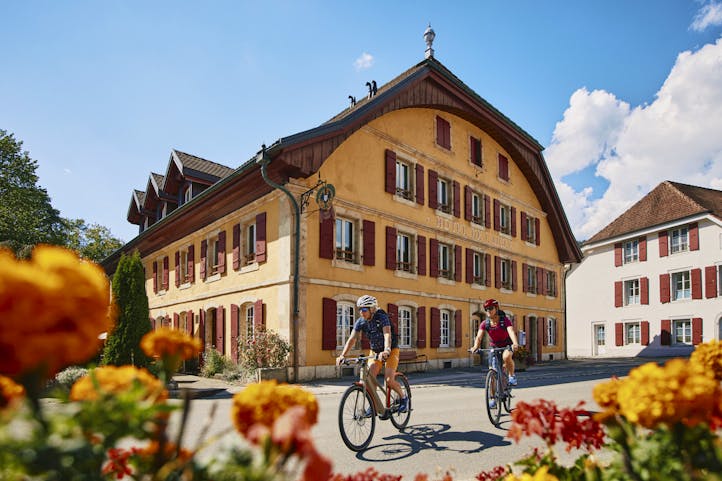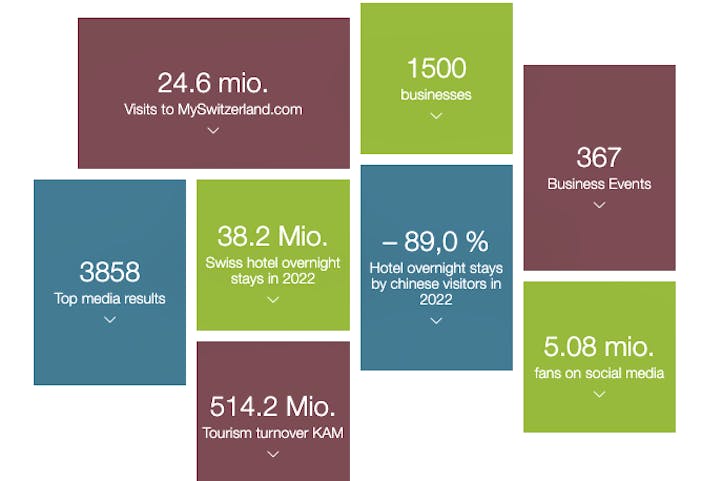Hotel overnight stays by guests from short-haul markets in the destinations: Please select the display period using the filter on the left side of the map. Three options are available: 2022, 2019–2022, 2021–2022.
Find out more about:
In 2022, well over 11 million hotel overnight stays were attributable to guests from short-haul markets (excluding the domestic market). This means almost 91% of the pre-pandemic level (2019) was reached in this segment. The interactive chart shows the development of overnight stays in the destinations throughout the year.
Incidentally, the month of August 2022 turned out to be the strongest, where the level in this market group was even higher than the pre-pandemic level of 2019 (+4.4 %). The following tourism regions performed particularly well: Ticino (+18.2%), Bern (+14.2%), Aargau-Solothurn (+12.3%), Lucerne-Lake Lucerne (+11.6%) and Graubünden (+7.8%).
Market Group Managers Alex Herrmann (Europe West) and Jörg Peter Krebs (Central Europe & Middle East) explain why the short-haul markets have recovered so well from the pandemic.


Alex Herrmann / Jörg Peter Krebs
Head of Europe West, Country Manager United Kingdom & Ireland / Head Central Europe & Middle East, Country Manager Germany
Which short-haul markets saw a particularly strong increase in demand when almost all pandemic restrictions were lifted in March 2022?
Alex Herrmann: Overnight stays from France and the Netherlands developed very positively; among Dutch guests, Switzerland even had its best summer in ten years. The UK as a primary air market is lagging, with overnight stays still more than 20% below 2019 levels in the summer of 2022.
Jörg Peter Krebs: From the Central European short-haul markets of Germany, Austria, Poland and the Czech Republic, we are practically at the same level as in 2019 in the summer months. In the case of Germany, our most important foreign market, we even recorded a slight increase. Many tourism professionals from the short-haul markets therefore almost admire the Swiss tourism experts for the uncomplicated and pragmatic way in which they have dealt with the Covid-19 crisis. Our secret “star” is Poland: the only foreign market with slight growth since 2019!
There was often talk in the media of a backlog of people wanting to go on holiday. Has this also been reflected in the short-haul markets, and if so, to what extent?
Jörg Peter Krebs: In Germany, the longing or the desire to go on holiday with the intention of taking one or more trips per year is back to pre-Covid levels. Switzerland as a possible holiday destination appeared in the top 10 for the first time in the travel analysis of the Forschungsgemeinschaft Urlaub und Reisen (FUR). For once, price was not the primary factor when making travel decisions. Topics such as proximity, sustainability and safety (without going into further detail) have become increasingly important.
Alex Herrmann: Yes, this has been shown twice in some markets, on the one hand in terms of general travel need, and on the other hand in terms of the numerous bookings that have been pushed back from 2020 and 2021 to 2022. This does not apply to all short-haul markets. Italy and Spain, for example, are recovering more slowly when it comes to travelling to Switzerland.
The summer of 2022 was characterised by turbulence in international travel throughout Europe, especially air travel. Did this impact the travel behaviour of guests, and if so, was the impact rather positive or negative for Switzerland?
Alex Herrmann: The “flight chaos” of summer 2022 had a mostly positive impact on Switzerland. Travel by car and train became more attractive, notably from the Netherlands (primarily by car) and France (by car and train). The impact on the European air travel markets, primarily the UK, was markedly negative.
Jörg Peter Krebs: In my opinion, yes and no: It did not have a major impact on so-called package tourists to the Mediterranean. People wanted to travel and accepted certain hurdles. Long-distance travel was still perceived as unsafe in this context. Travel by train (day and night) is back on trend. For example, we saw growth in cross-border traffic from Germany and Austria. In addition, we are increasingly observing a shift from “last minute” to “last second”.


